Valentine’s Day Hearts: The Surprising Connection Between Your Heart and Your Hearing

Heart decorations, heart balloons, heart-shaped candy; no doubt about it, love is in the air. Valentine’s Day is February 14th, so let’s talk about your heart and how it can have an effect on your hearing. How Your Heart Affects Your Ears In the inner ear, there’s an organ called the cochlea. The cochlea houses…
How Everyday Sounds May Be Harming Your Hearing

We live in a noisy world. Alarms, television, kitchen appliances, traffic, loud music, sirens and industrial activities are prevalent in our daily lives. It’s estimated that more than 30 million Americans are regularly exposed to hazardous levels of sound, but what sounds are considered hazardous? And how can we prevent damage to our hearing? Measuring…
Holiday Parties and Hearing Protection

The festive part of the season comes from spending quality time with family, friends and loved ones. As your social calendar fills up with holiday parties and New Year’s Eve parties, it’s time to consider something often overlooked at events like this: the noise. How Loud Is Too Loud? Music, parades and countdowns on TV,…
Exploring the Relationship Between Anemia and Hearing Loss

Anemia is a condition in which the body has low levels of healthy red blood cells, which are needed to deliver oxygen throughout the body. It’s relatively common; almost 10% of the population has anemia. Some symptoms of anemia include fatigue and dizziness, chest pain, shortness of breath and heart palpitations, and recent research shows…
How to Monitor Your Hearing Loss When You Live Alone

Hearing loss is progressive throughout a person’s life. It can be so gradual that many people don’t realize it’s happening. It’s a condition often noticed by friends and family before the person who has it realizes how much it has progressed. That makes it even more essential to determine when and how you plan to…
What to Know About Protecting Your Residual Hearing

If you’ve been diagnosed with hearing loss, preserving the hearing you still have, also known as residual hearing, is a critical part of long-term hearing health. Hearing loss typically can’t be reversed, so once diagnosed it’s important to take taking the right steps to help slow its progression. Why Protecting Residual Hearing Matters Residual hearing…
Why Hearing Checks Should Be a Regular Part of Your Healthcare Routine
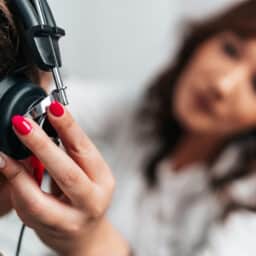
Maintaining strong hearing is key for staying connected with your surroundings and loved ones. Consider how you prioritize your hearing health and what you can do to implement hearing health maintenance as part of your healthcare routine. Why You Should Prioritize Hearing Tests Hearing loss can develop slowly, making it easy to miss early warning…
What Can I Expect with Bluetooth® Hearing Aids?

If you’re considering hearing aids, you may wonder what features you should consider. Bluetooth technology allows your hearing devices to connect directly to your phone, computer or other technology. Our team at can tell you more about Bluetooth features to help you find the perfect pair of hearing aids. Easily Stream from Your Other Devices…
If You’re Over 50, Here’s What You Should Know About Sensorineural Hearing Loss

Are you over 50 and finding it harder to keep up with conversations? Do you struggle to hear clearly in noisy environments? Have loved ones or colleagues pointed out changes in your hearing? If any of this sounds familiar, you may be experiencing sensorineural hearing loss. Understanding Sensorineural Hearing Loss Sensorineural hearing loss happens when…
Thanksgiving Together: How Hearing Aids Help Create a Day of Connection

Thanksgiving is a time to gather with those we cherish, give thanks and eat lots and lots of food. But for those with hearing loss, the lively buzz of a holiday meal can sometimes feel like a challenge instead of a celebration. If you or a loved one struggles with hearing loss, this Thanksgiving could…
What To Know About Auditory Training

Hearing loss impacts more than one in 10 people in the United States. Hearing loss doesn’t just muffle sounds. It can also make it harder for your brain to recognize familiar noises. Without treatment, the brain starts to forget how to process certain sounds, making it challenging to adjust even after getting hearing aids. That’s…
What to Know About Hidden Hearing Loss
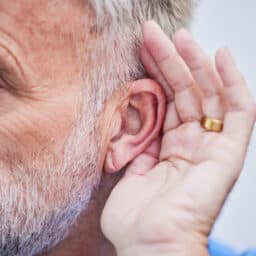
Hidden hearing loss is a type of hearing loss that cannot be discovered on standard hearing tests, but is reported by patients, especially in places with background noise. Hearing loss affects approximately 18% of the population worldwide, and hidden hearing loss could make that percentage even higher. It may be difficult to diagnose, so here’s…
Understanding Hearing Aids and Seasonal Changes
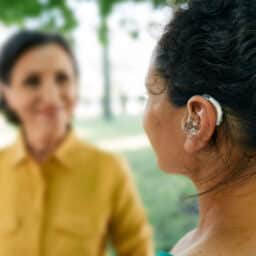
As summer rushes by, it won’t be long before the crisp fall air starts to settle in. The changing seasons not only bring shifts in weather but also in how you should care for your hearing aids. With more than 10% of people in the United States living with hearing loss, and a large portion…
Tips for Driving Safely With Hearing Loss

Approximately 22% of adults ages 65-74 and 55% of those over 75 have disabling hearing loss. When you’re diagnosed with hearing loss, it’s natural to worry about how it will affect your daily life. One common concern is how the condition will affect the safety of your driving. How Does Hearing Loss Affect Driving? Your…
How To Prepare for Hospital Stays with Hearing Loss

A hospital stay can be an uncertain experience for anyone, but for individuals with hearing loss, it can present additional challenges. Effective communication is critical in a healthcare setting, and taking steps to prepare can help ensure you receive the best care possible. Here’s a guide on how to prepare for a hospital stay when…
How To Safeguard Your Hearing Aids While Embracing an Active Lifestyle

Exercise can put you in a better mood, improve your joint and bone health and help stave off conditions like cardiovascular disease and type 2 diabetes. While the right amount of exercise may vary from person to person, the CDC recommends 150 minutes of moderate-intensity physical activity and two days of muscle-strengthening activity per week…
Why Does My Earwax Build Up (And Can It Affect My Hearing?)

Cerumen, more commonly known as earwax, is a protective oily substance in the ear produced by glands in the ear canal. Earwax exists to protect the ear against dirt, debris and infection and should naturally expel itself. Sometimes circumstances may prevent this natural process from working as efficiently as it should, leading to a buildup….
What Is Congenital Hearing Loss?

Congenital hearing loss is hearing loss, full or partial, that is present at birth. It is one of the most prevalent chronic conditions diagnosed in children. There is no cure for congenital hearing loss, but there are management options that may prevent further hearing loss and prevent speech-language developmental delays. Symptoms and Causes Most developed…
How To Stay Active with Hearing Aids

Caring for your hearing aids involves gentle handling and regular drying, which might make it seem odd to wear them during exercise. However, with proper maintenance, hearing aids can enhance your workout experience and improve your safety. Exercising with Hearing Aids There are several reasons you should consider wearing your hearing aids during exercise. Depending…
What Is Temporary Threshold Shift
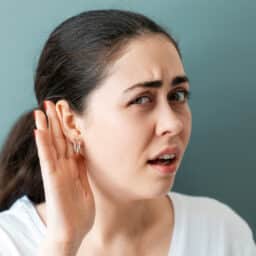
If you have ever left a loud concert at The Mercury Ballroom to find that noises feel too quiet, you have likely experienced a temporary threshold shift. With a temporary threshold shift, sounds may sound muffled, and you may have a feeling of fullness or hear a slight ringing in your ears, known as tinnitus….
Can Vitamin D Deficiency Contribute to Hearing Loss?

More than 1.5 billion people (nearly 20% of the global population) live with hearing loss. Common factors that can increase your risk of hearing loss include aging, loud noise exposure, viral illnesses, genetics and more. New research indicates that vitamin D deficiency could be another risk factor for developing hearing loss. What Is Vitamin D?…
The Relationship Between Hearing Loss and Mental Fatigue

Most of us have experienced mental fatigue after a long day of listening to presentations or attending Zoom meetings. However, if you have hearing loss, you are likely to experience this fatigue sooner and more frequently. Struggling to Hear Wears Out Your Brain Hearing loss often happens because of damage to the hair cells of…
When Should You Get a Hearing Test?

Did you know that an estimated 48 million Americans experience some degree of hearing loss? Even more surprising is that only a fraction of people with hearing loss are receiving treatment for this. Oftentimes, hearing loss comes on so gradually that people go years before realizing they have a problem. One of the issues is…
Can Ear Infections Cause Hearing Loss?
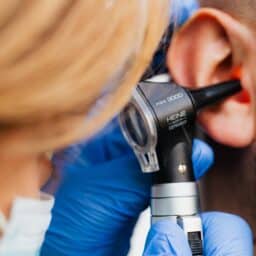
The most commonly associated symptom with ear infections is ear pain. However, ear infections can also cause muffled hearing or hearing loss. This hearing loss is usually temporary in nature and returns to normal once the infection clears up. Some people who experience severe, chronic ear infections may be at a higher risk of permanent…
Protect Your Hearing on July 4

As the Fourth of July nears and growing numbers of Americans are reporting hearing loss, the American Academy of Audiology and Heuser Hearing Institute are cautioning the public to protect their hearing during firework displays. Noise from fireworks can reach up to 155 decibels. To put this into perspective, this is louder than a jet…
Here’s How You Can Protect Your Ears While Exercising Outdoors

Nicer weather means you’ll want to spend more time outdoors, even to exercise. However, when doing so, it’s important to take measures to protect your ears and hearing. We review tips for this below. Wear Hearing Protection If you’re going to be going for a run through Levy Park on Eastside Street where they could…
Vacation Packing Essentials for People with Hearing Loss
The National Institute on Deafness and Other Communication Disorders reports, “Approximately 15% of American adults (37.5 million) aged 18 and over report some trouble hearing.” If you’re among this population and you’re preparing to go on vacation, you may need to do a little extra preparation. Below we review your vacation packing essentials for people…
How Do Our Brain’s Expectations Influence What We Hear?
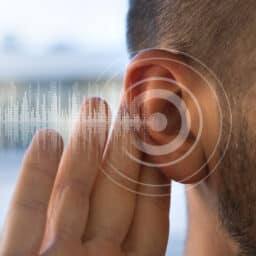
Our ears and our brains work together to help us hear. Soundwaves from your environment are captured by the outer ear and travel down the ear canal, which leads to the eardrum. When the soundwave hits the eardrum, a vibration is created, which passes through three tiny bones within the middle ear called the malleus,…
Is It Safe to Sleep with Headphones or Earbuds?
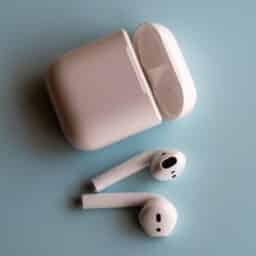
Whether you live in the city and you’re trying to drown out the noises or you find listening to music or a sleepcast to be relaxing, you may be tempted to sleep with headphones or earbuds in. But is doing so safe for your hearing? We answer this question below. What the Research Shows A…
Get into the Spooky Spirit with Your Hearing Aids

Hearing loss is common. In fact, according to the National Institute on Deafness and Other Communication Disorders, two to three of every 1,000 babies in the U.S. is born with a detectable level of hearing loss in one or both ears, and one in eight people ages 12 and older has hearing loss in both…
Protect Your Hearing During These Fall Activities

Undoubtedly, you’ve seen the return of pumpkin spice lattes and noticed the sun setting a little earlier each day. That can only mean that fall is upon us. As you look forward to your favorite fall activities, it’s always good to know how to care for your hearing health during this season. Popular Fall Activities…
Fighting Fires and Hearing Loss

Everyone knows that fighting fires can be a dangerous job. The men and women of the Louisville Fire Department put themselves at risk every day to keep those in our community safe. While some risks are obvious, one that may surprise you is that firefighters are at a higher risk of hearing loss. The…
Understanding Sounds: How Do Amplitudes & Frequencies Impact Hearing?
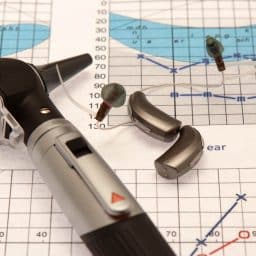
The word “sound” describes a type of energy that travels in waves. You can measure these waves in two ways: amplitude, which is reported in decibels (dB), and frequency, which is reported in Hertz (Hz). In this post, we review how amplitudes and frequencies impact your hearing. What Is Amplitude? Amplitude refers to the pressure…
4 Reasons to Bring Someone with You to Your Hearing Appointment

If you’re planning on scheduling an appointment to get your hearing checked out, first off congratulations on taking control of your hearing health! Secondly, we encourage you to bring a partner or other loved one to your appointment to help support you on your journey. Your Hearing Loss Affects Your Loved Ones While you may…
How Hearing Loss Can Isolate You & Make You Feel Lonely

After more than two years of staying home due to the global pandemic, most understand the toll loneliness and isolation can have on their mental health. For those with hearing loss, the impact may be even greater. Impact of Loneliness & Social Isolation According to a 2021 study, about 36% of Americans reported experiencing serious…
How to Maintain Hearing Health with Diabetes
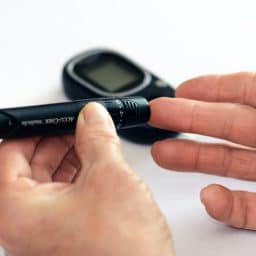
Diabetes is a serious condition that affects the body’s ability to regulate blood sugar. Untreated or poorly managed diabetes can lead to many other health complications, including heart problems, kidney failure, nerve damage, vision problems and stroke. Thankfully, there are many treatments and lifestyle changes that people can make to help manage their diabetes and…
Why Do Loud Sounds Startle People With Hearing Loss?
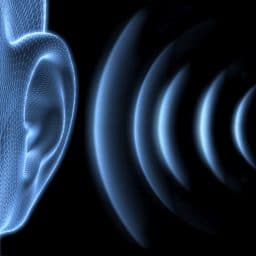
Just because a person suffers from hearing loss does not mean they lose the ability to startle at loud noises. In fact, in many cases, loud noises can be perceived as more startling and uncomfortable. If you suffer from hearing loss you may have noticed this phenomenon, referred to as recruitment, or in some cases…
Teaching Children About Noise-Induced Hearing Loss

The information you pass along to children when they are young is what shapes their actions as adults. Teaching them how to safely cross the street, tie their shoes and treat their classmates are lessons they will carry forever. Hearing experts suggest adding healthy hearing habits to this list. What Is Noise-Induced Hearing Loss? For…
Can Listening to Music Improve Your Well-Being?

Music plays a large role in society by helping to celebrate important events, bringing people together and increasing overall well-being. Unfortunately, those with untreated hearing loss do not get to experience these positive effects. Hearing aids can help. Why Hearing Music Is Important As one expert explains, music is “sound that conveys emotion.” This unique…
Tips for Preventing Hearing Loss

The most common causes of hearing loss are exposure to noise and aging. While there is nothing to be done about getting older, there are some steps you can take to help lower your risk of developing hearing loss. Below is a look at six lifestyle changes you can make that may help you prevent hearing…
The Connection Between Hearing Loss & Speech Comprehension

Speech comprehension refers to the ability to take in speech signals, understand the meaning behind them and store them as information. Speech comprehension is an especially important skill for children, as their brains are rapidly developing and learning new information. Below we review how hearing loss can affect speech comprehension, the importance of early intervention…
New Report Estimates 2.5 Billion People Will Soon Have Hearing Loss
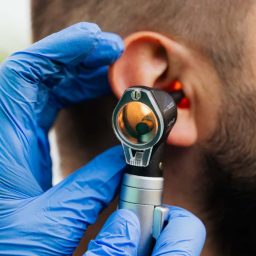
Usually, we talk about hearing loss numbers in terms of American adults. But a newly published report by the World Health Organization confirms that hearing loss is a global issue. World Report on Hearing The World Health Organization estimates that by the year 2050, 2.5 billion people across the globe will have some degree of…
Hearing Loss: Why it’s a Big Deal? Race and Socioeconomic Disparities in Healthcare

If the average person were asked to list the most common medical conditions plaguing Americans today, no one would be shocked to see heart disease, cancer or diabetes topping the list. However, most would be surprised to see hearing loss—affecting around 40 million Americans—take a top spot as one of the most prevalent chronic conditions…
Tips for Raising a Child with Hearing Loss

Hearing loss is not a condition confined to adults; people of all ages can be affected by a hearing impairment. According to the Centers for Disease Control and Prevention, about one to three of every 1,000 children have hearing loss. If your child is one of those, it is important to know how to empower…
Understanding Childhood Hearing Loss
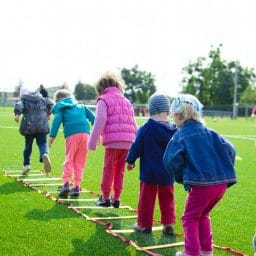
A diagnosis of childhood hearing loss usually prompts a lot of questions and concerns from parents. While it’s totally normal to feel overwhelmed, rest assured that your child’s audiologist is there to support you every step of the way. To get you started, we’ve compiled an overview of information about childhood hearing loss. Is Childhood…
Is Hearing Loss Common for Service Members?

One of the most common causes of hearing loss is exposure to unsafe noise levels. When this occurs on a job, it is known as occupational hearing loss. There are many industries that expose employees to excessive noise, like construction, air traffic control and the military. Research has shown that members of the military are…
What Should You Know About Hearing Loss and Heart Disease?

Heart disease is responsible for 655,000 deaths in the U.S. each year, making it the leading cause of loss among both men and woman. Even with such a high prevalence, many don’t understand the true threat of the disease or how closely connected it is with other health conditions, especially hearing loss. Understanding Heart Disease…
October is Audiology Awareness Month

Hearing loss can be a confusing experience that leaves you feeling discouraged, frustrated and isolated. October is Audiology Awareness Month, which means now is a great time to learn about life changes that can help make for a better tomorrow. Audiologists, including the experts at , can help identify hearing problems and recommend a treatment…
How to Help Children with Hearing Loss Succeed at Distance Learning

As the global pandemic continues, we are all figuring out how to adapt to this new normal. While many schools across Kentucky hoped to open back up at the start of the year, more are opting to utilize distant learning to help keep our children safe. This change is challenging for all children, and especially…
Hearing and Vision Loss Linked with Increased Risk of Dementia
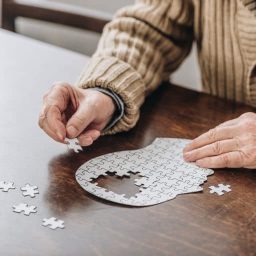
Past research has found that vision impairment and untreated hearing loss are associated with a higher risk of developing dementia. New research sought to dive further into these connections, exploring the effects of combined vision and hearing problems – referred to as dual sensory impairment (DSI). About the Study The study, called “Dual sensory impairment…